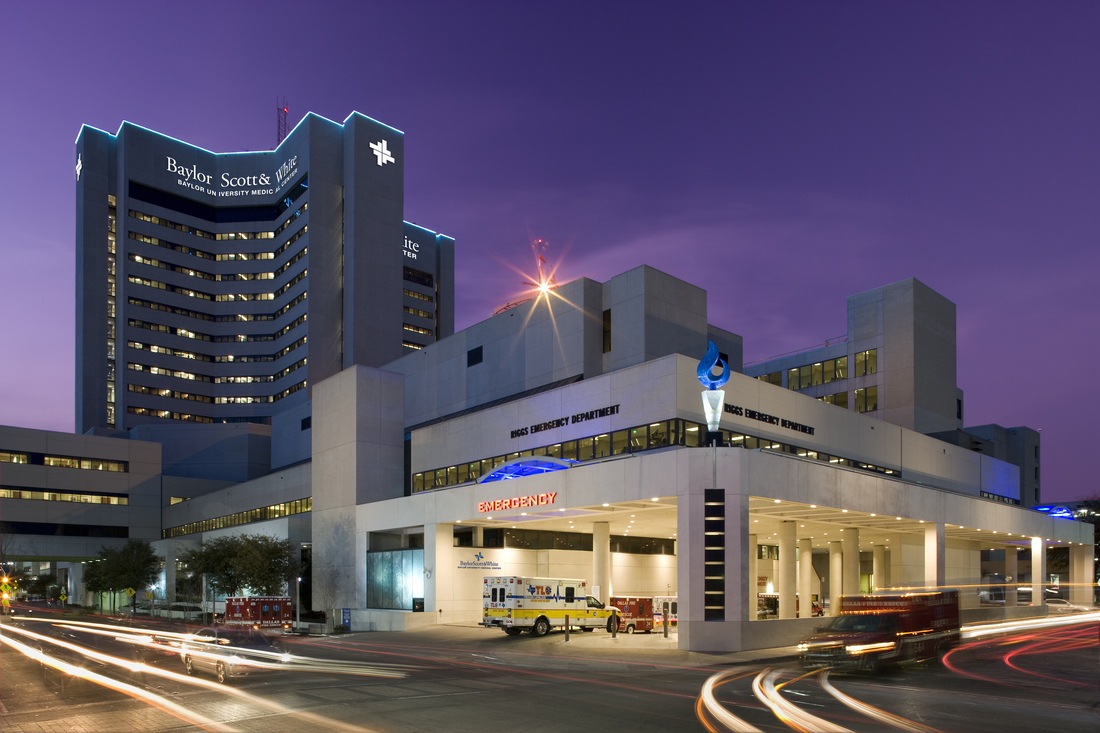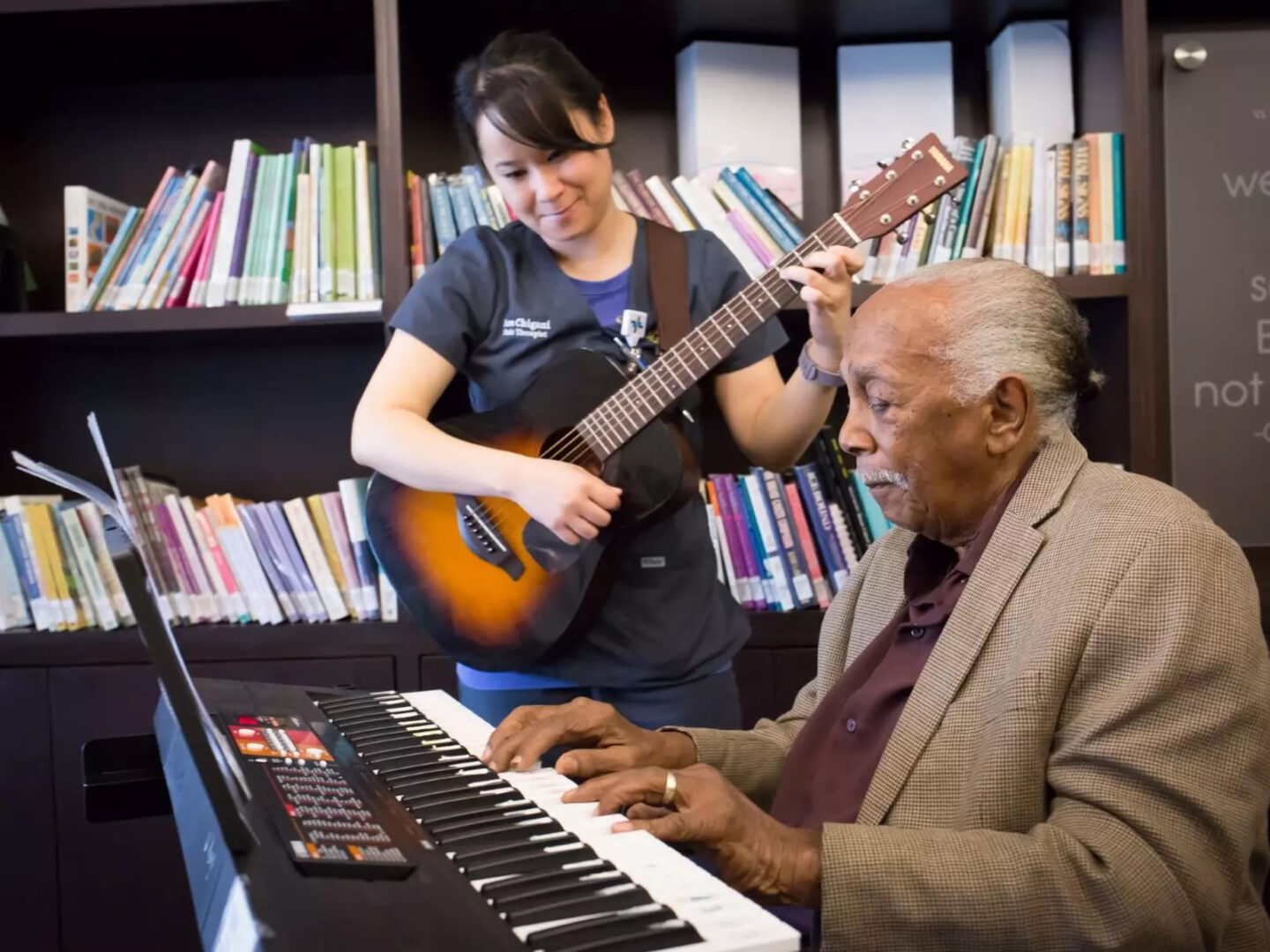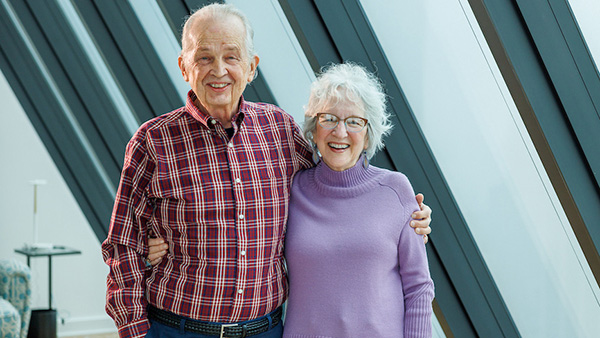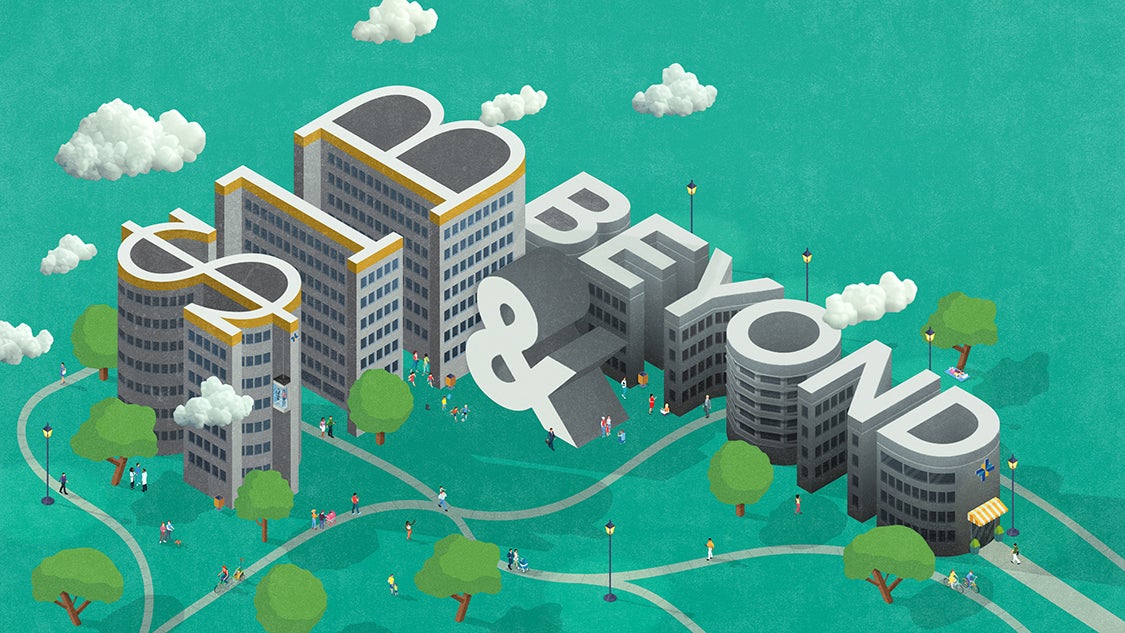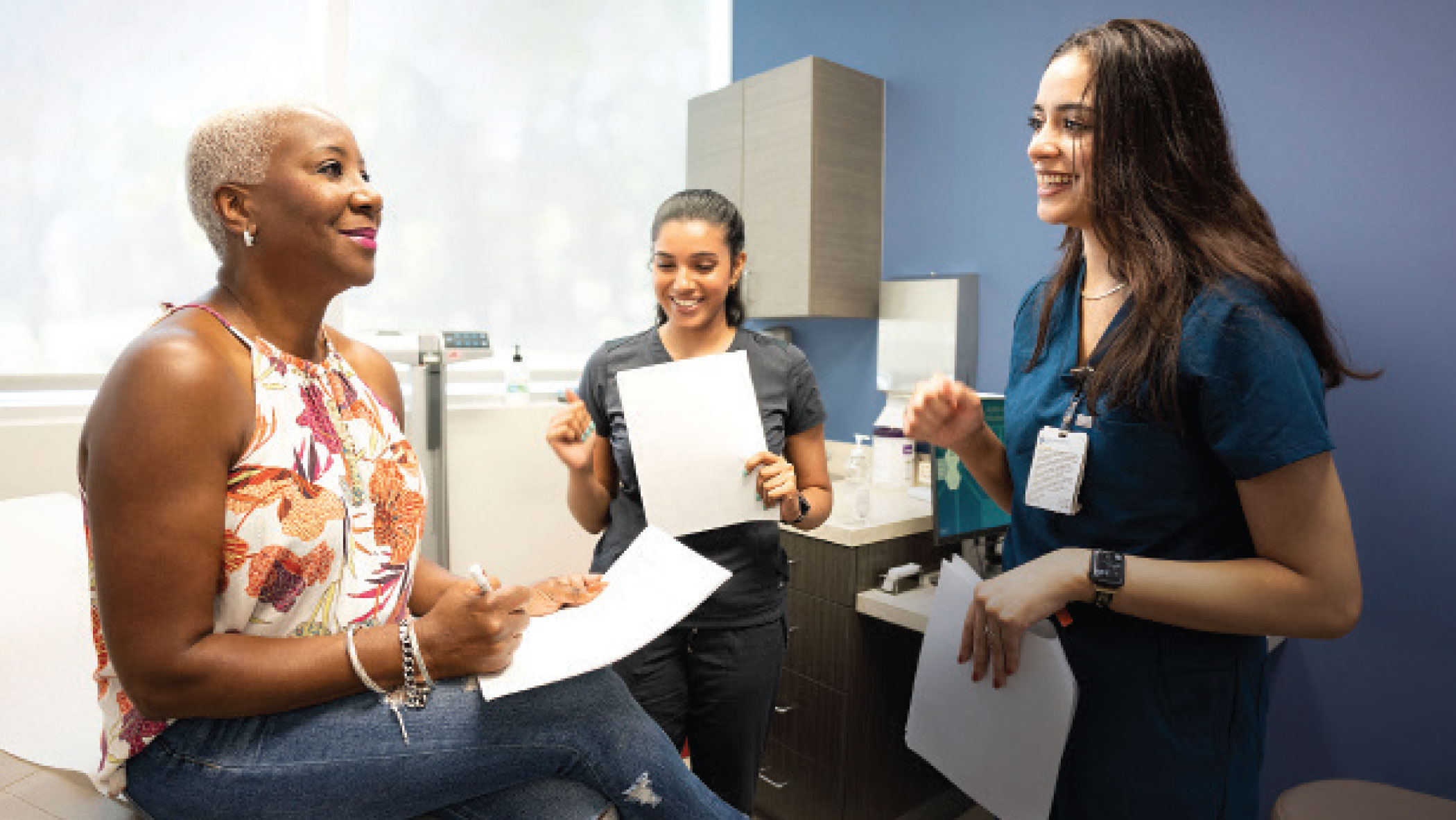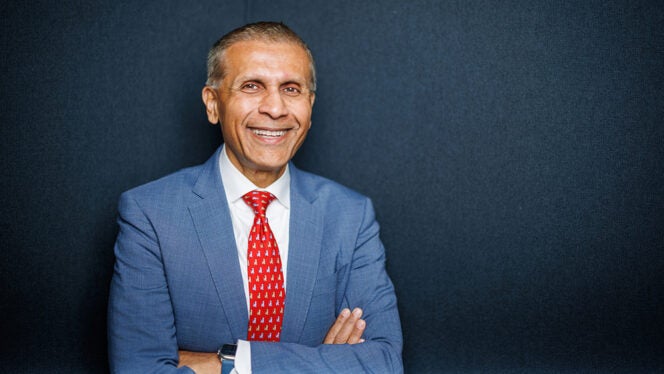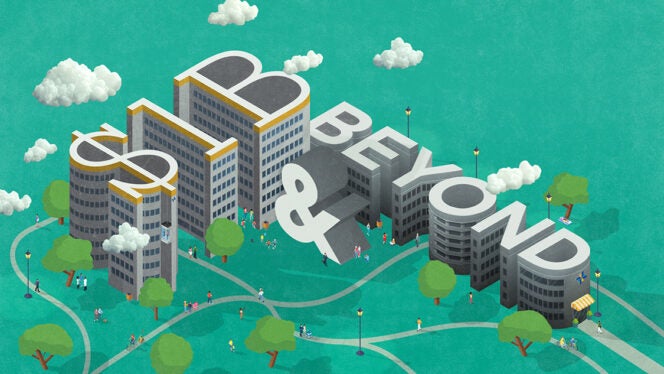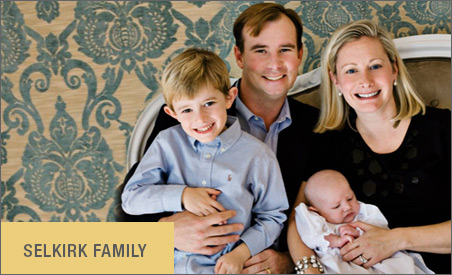In this Article
A collaboration between Baylor Scott & White Research Institute and Exact Sciences Corp. is great news for early cancer detection in Texas.
In this Article
For 25 years, Pratima Bakshi, MD, has told her patients that, beyond routine screenings like colonoscopies, mammograms and Pap smears, there’s little else available to detect cancer early.
But this past August, Dr. Bakshi finally had something new to tell her patients by offering them an opportunity to enroll in the Texas Multi-Cancer Early Detection (MCED) Program, a collaboration that brings together Baylor Scott & White Research Institute and Exact Sciences Corp.
“This is a game changer,” said Dr. Bakshi, an internal medicine physician on the medical staff of Baylor Scott & White Health. “It’s what my patients have been waiting for.”
One of her patients, Angelia Hight, 61, is the first to enroll in the study. Angelia takes a proactive role in her health and feels the MCED study is an opportunity to do just that. “This is a positive step for consumers who want to be proactive about cancer. We want to be able to detect it early if possible, so we can have a chance at a better outcome than if we detect it later,” she said.
Cancer is the second-leading cause of death in the U.S. and only 28% of cancers in the U.S. have a recommended routine screening test (mammography, colonoscopy, Pap smears and low-dose CT scans). MCED tests are designed to detect multiple types of cancer at an early stage, often before symptoms become apparent—potentially revolutionizing cancer screenings.
4
Cancer types currently have a recommended screening tests:
- Breast
- Colon
- Cervical
- Lung
57%
of all diagnosed cancers are without a recommended screening test
70%
of cancer-related deaths are due to cancers without a recommended screening test
These tests typically involve analyzing blood to identify biomarkers that could suggest the presence of cancer.
With an aim of intercepting cancers in Texans earlier, when treatment may be more effective, the program includes approximately 50,000 MCED tests being administered to BSW patients across North Texas from diverse racial, social and geographic backgrounds. Exact Sciences’
MCED blood test will be used to complement standard screening methods, enabling the potential for earlier-stage cancer detection.
If a patient’s test comes back positive, their physician will refer them to an oncology nurse navigator to help guide them through the next steps of their journey, which may include imaging studies and/or a biopsy. “The best medicine is to prevent illness in the first place,” Dr. Bakshi said. “While we can’t prevent all types of cancer, the second-best thing is to catch it in its early stages when it’s more responsive to treatment.”
“This is a whole new era in which we can detect cancers even before a scan, giving us a chance to intercept cancer earlier than ever before,” said Ronan Kelly, MD, director of oncology, Baylor Scott & White Charles A. Sammons Cancer Center at Baylor University Medical Center at Dallas and chief of oncology, North Texas Division, Baylor Scott & White. Dr. Kelly leads the Texas MCED Program, which is the largest research study that Baylor Scott & White has undertaken.
“The U.S. government’s Cancer Moonshot initiative calls for a decrease in cancer mortality by 50% over the next 25 years, and major cancer centers and health systems like ours are ready to take on this challenge,” said Dr. Kelly. “As the largest not-for-profit integrated healthcare delivery network in Texas, Baylor Scott & White is poised and ready to help with this national effort.”
The promise of early detection
With 13.5 million patient encounters each year, more than 164 primary care facilities and expertise in cancer care, Baylor Scott & White is positioned to become a leader in early detection and diagnosis. Philanthropy will play a crucial role and provide the greatest opportunity to transform cancer care for generations to come. Generous donations can support a wide variety of efforts, including:
Early detection efforts
- Build the infrastructure to expand access to early detection methods through the Texas Cancer Interception Institute by opening studies such as the Multi-Cancer Early Detection (MCED) registry, which will improve population health and outcomes related to cancer.
Patient support and care
- Grow our team of oncology patient navigators and psychologists to support the holistic needs of our patients.
- Launch virtual patient navigation in the MyBSWHealth app to provide 24/7 guidance and support for patients who are identified as high risk or for those who receive a cancer diagnosis.
Cancer research
- Grow the Texas Immuno-Oncology Biorepository (TIOB), a hub that collects biospecimen samples from a large and diverse patient population for research to diagnose cancer or cancer recurrences earlier, and to develop more effective immunotherapies.
For more information, contact
